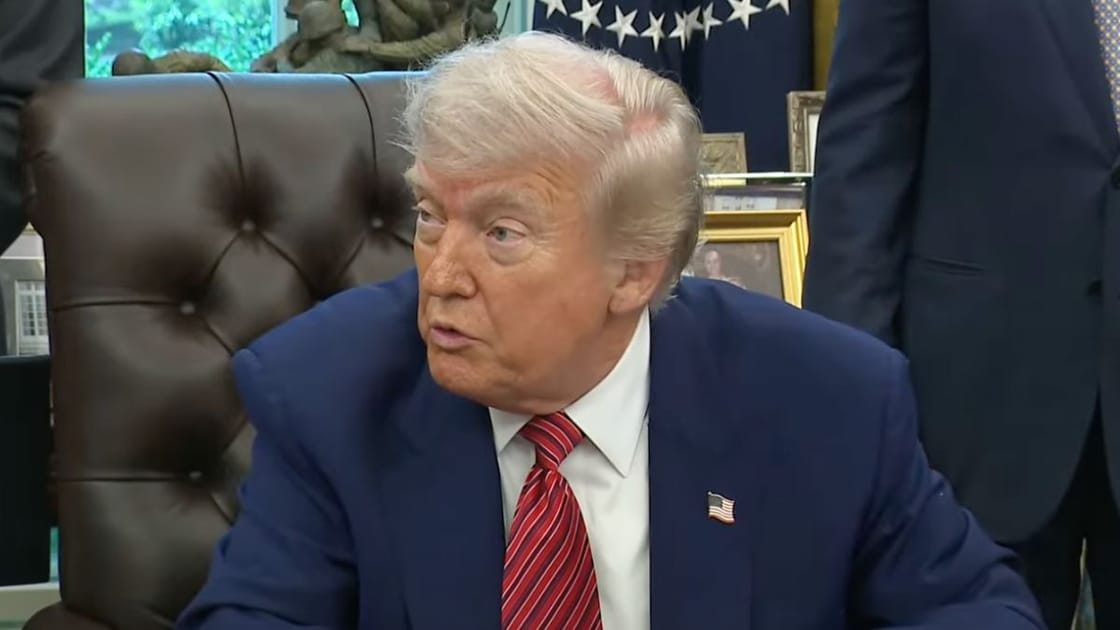
Republicans’ behemoth funds reconciliation invoice nonetheless faces main hurdles after passing the U.S. Home final week, with a number of senators elevating considerations concerning the laws’s price.
The One Massive Stunning Invoice Act in its present type hikes the debt ceiling by $4 trillion and funds massive swaths of Trump’s tax, border, vitality, and protection agenda, together with codifying President Donald Trump’s 2017 tax cuts. The laws consists of 11 separate Home committee prints that collectively fulfill the April funds decision’s 10-year spending and financial savings directions.
That funds blueprint allowed Home committees to funds $4.5 trillion in misplaced income over the following decade, offered additionally they discover $2 trillion in cuts and assume $2.6 trillion in financial development.
Since Home committees discovered solely $1.5 trillion in cuts – together with to entitlement applications like Medicaid – the invoice authorizes $4 trillion in spending. However organizations just like the Committee for a Accountable Federal Finances say the true price of the invoice might quantity to a $5.2 trillion federal debt improve.
Home Speaker Mike Johnson, R-La., barely garnered sufficient Republican votes to advance the invoice by way of his chamber after partially fulfilling calls for from a number of GOP factions, together with fiscal hawks.
However the delicate stability could not survive if Senate leaders make the controversial adjustments they need – comparable to elevating the debt ceiling by $5 trillion and undoing the Home’s Inflation Discount Act funding clawbacks – and sufficient Republican senators already oppose the invoice in its present type to tank it as soon as it reaches the higher chamber.
Associated: Trump Proves Doubters Flawed Once more With Huge Commerce Deal
Sen. Rand Paul, R-Ky., stated he’s “a no” on the invoice “[until] everybody in Washington will get severe about paying down our nationwide debt,” which is ready to surpass $37 trillion in 2025.
“Republicans promised People we’d rein in wasteful spending and deal with the nationwide debt in the event that they gave us management of all three branches of presidency,” Paul stated in a current X put up. “As an alternative, my colleagues need to tack on extra to our nationwide debt as an alternative of creating needed cuts.”
However the Senate’s purported plans will seemingly skyrocket the price of the already costly invoice, because of the funds blueprint additionally permitting Senate committees to spend as much as $1.5 trillion on their very own coverage needs.
For whereas Home committees operated beneath the present regulation baseline, which assumes that extending the tax cuts would end in trillions of misplaced federal income – therefore their work to seek out $1.5 trillion in cuts – the Senate determined to undertake a present coverage baseline when calculating their prices.
The controversial accounting tactic, which critics name a “gimmick,” treats the tax minimize extension as a continuation of present regulation relatively than new coverage, theoretically zeroing out the price of completely codifying the TCJA.
Sen. Ron Johnson, R-Wis., referred to as the invoice’s trajectory “mortgaging our youngsters’s future” in a number of social media posts and feedback to reporters.
“Republican leaders have repeatedly stated, ‘we don’t have a income downside, now we have a spending downside,’ Johnson stated on X. “I consider there are sufficient Republican Senators to pressure them to reside as much as their rhetoric.”
Associated: Lawmakers Examine Federal Spending On Playing, Grownup Leisure And Extra
The Senate can also be elevating the debt ceiling by $5 trillion relatively than $4 trillion, to which Paul has vehemently objected, telling reporters that “there’s nothing fiscally conservative about increasing the debt ceiling greater than we’ve ever completed it earlier than.”
As a result of the funds reconciliation course of bypasses the Senate filibuster, the higher chamber might cross the ultimate package deal by a easy majority vote. But when simply two extra senators be part of Rand and Johnson in voting towards the megabill, Trump’s complete coverage agenda might disintegrate.
Syndicated with permission from The Middle Sq..

Republicans’ behemoth funds reconciliation invoice nonetheless faces main hurdles after passing the U.S. Home final week, with a number of senators elevating considerations concerning the laws’s price.
The One Massive Stunning Invoice Act in its present type hikes the debt ceiling by $4 trillion and funds massive swaths of Trump’s tax, border, vitality, and protection agenda, together with codifying President Donald Trump’s 2017 tax cuts. The laws consists of 11 separate Home committee prints that collectively fulfill the April funds decision’s 10-year spending and financial savings directions.
That funds blueprint allowed Home committees to funds $4.5 trillion in misplaced income over the following decade, offered additionally they discover $2 trillion in cuts and assume $2.6 trillion in financial development.
Since Home committees discovered solely $1.5 trillion in cuts – together with to entitlement applications like Medicaid – the invoice authorizes $4 trillion in spending. However organizations just like the Committee for a Accountable Federal Finances say the true price of the invoice might quantity to a $5.2 trillion federal debt improve.
Home Speaker Mike Johnson, R-La., barely garnered sufficient Republican votes to advance the invoice by way of his chamber after partially fulfilling calls for from a number of GOP factions, together with fiscal hawks.
However the delicate stability could not survive if Senate leaders make the controversial adjustments they need – comparable to elevating the debt ceiling by $5 trillion and undoing the Home’s Inflation Discount Act funding clawbacks – and sufficient Republican senators already oppose the invoice in its present type to tank it as soon as it reaches the higher chamber.
Associated: Trump Proves Doubters Flawed Once more With Huge Commerce Deal
Sen. Rand Paul, R-Ky., stated he’s “a no” on the invoice “[until] everybody in Washington will get severe about paying down our nationwide debt,” which is ready to surpass $37 trillion in 2025.
“Republicans promised People we’d rein in wasteful spending and deal with the nationwide debt in the event that they gave us management of all three branches of presidency,” Paul stated in a current X put up. “As an alternative, my colleagues need to tack on extra to our nationwide debt as an alternative of creating needed cuts.”
However the Senate’s purported plans will seemingly skyrocket the price of the already costly invoice, because of the funds blueprint additionally permitting Senate committees to spend as much as $1.5 trillion on their very own coverage needs.
For whereas Home committees operated beneath the present regulation baseline, which assumes that extending the tax cuts would end in trillions of misplaced federal income – therefore their work to seek out $1.5 trillion in cuts – the Senate determined to undertake a present coverage baseline when calculating their prices.
The controversial accounting tactic, which critics name a “gimmick,” treats the tax minimize extension as a continuation of present regulation relatively than new coverage, theoretically zeroing out the price of completely codifying the TCJA.
Sen. Ron Johnson, R-Wis., referred to as the invoice’s trajectory “mortgaging our youngsters’s future” in a number of social media posts and feedback to reporters.
“Republican leaders have repeatedly stated, ‘we don’t have a income downside, now we have a spending downside,’ Johnson stated on X. “I consider there are sufficient Republican Senators to pressure them to reside as much as their rhetoric.”
Associated: Lawmakers Examine Federal Spending On Playing, Grownup Leisure And Extra
The Senate can also be elevating the debt ceiling by $5 trillion relatively than $4 trillion, to which Paul has vehemently objected, telling reporters that “there’s nothing fiscally conservative about increasing the debt ceiling greater than we’ve ever completed it earlier than.”
As a result of the funds reconciliation course of bypasses the Senate filibuster, the higher chamber might cross the ultimate package deal by a easy majority vote. But when simply two extra senators be part of Rand and Johnson in voting towards the megabill, Trump’s complete coverage agenda might disintegrate.
Syndicated with permission from The Middle Sq..














